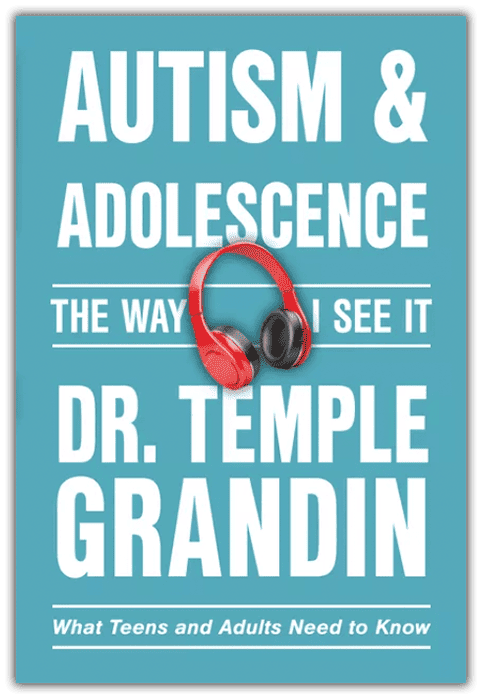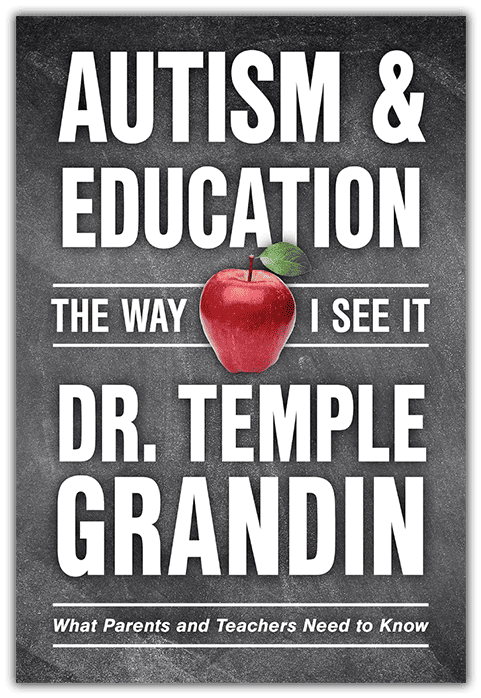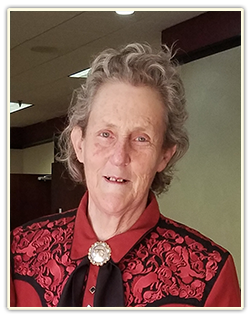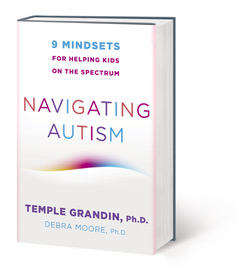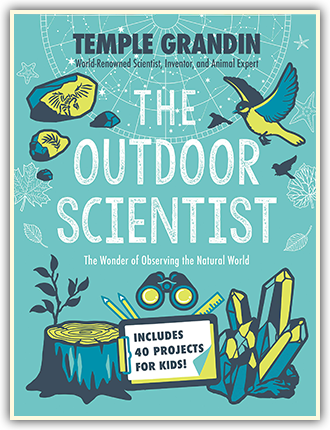
Webinars & Conferences
Upcoming Conferences
July 29 - Denver, CO
August 14 - Hershey, PA
August 18 - Webinar
August 20 - New Orleans, LA
August 23 - Flint, MI
September 10 - Dallas Forth Worth
September 11 - Knoxville, TN
September 15 - Missoula, MT
September 19 - Cincinnati, OH
November 19 - Memphis, TN
November 20 - Jonesboro, AR
A MUST LISTEN!!
Temple's Latest Books!
Temple Grandin earns Dole Leadership Prize!
NAVIGATING AUTISM
"The Outdoor Scientist"
Use Connections and Back Doors to Find Good Jobs
For Individuals on the Autism Spectrum
By Temple Grandin
Half of all good jobs for everybody are obtained through informal contacts with co-workers, friends, or contacts through a teacher. One person gets a great job with a major tech company because he took a class with a professor who knew somebody at the company. Another person, who was on the spectrum, recently got an excellent job at a food safety lab because his parents had met one of the managers. The lab loves his attention to detail when he receives food samples for testing. It is essential to follow the exact procedures to prevent one sample from cross contaminating another.
The secret to getting a good job when you are a bit different is to avoid traditional interviews and on-line applications. A recent article in the Wall Street Journal by Kathryn Dill indicated that automated algorithms often screen out lots of good applications. An autistic person needs to have an opportunity to demonstrate their skills. Some major employers are providing the opportunity for individuals on the spectrum to come into the workplace and show their abilities. Enterprising parents have found successful employment for their child by talking a local business into allowing them to volunteer first.
I learned to sell my work instead of myself, by showing potential clients drawings and photos of completed projects. Creating a portfolio showing your work is a great way to impress potential employers. There are lots of work opportunities in almost every neighborhood that many parents fail to see. Often I ask parents, “who do you know who either owns a business or is a manager of a store?” Sometimes they have to really think about it and then all of a sudden, they usually think of somebody that their son or daughter could work with.
It is best for kids to start learning work skills and hold several real summer jobs before they graduate from high school. This creates a gradual transition from the world of school to the world of work. The first jobs can be volunteer work at age 11 to 12 at a church, community center or farmer’s market. It is important for the child to learn how to do a task on a schedule where somebody outside the family is the boss. Jobs that involve lots of multi-tasking should be avoided. A busy takeout window or a chaotic store during the holiday rush would be poor choices.
Some examples of quieter work environments where autistic individuals have been really successful are office supplies, auto parts stores, and an ice cream shop. For tasks that have to be done in a sequence of stops, the individual should be given a written checklist containing the steps. It is never too late to start working with young adults who may be addicted to video games The video games have to be gradually replaced with something else. There have been three successes replacing video games with car mechanics. The individuals learned that mechanics was more interesting then video games. Today one of the guys is repairing trains. The transitions were done gradually and video games were slowly replaced with more hours working on cars. Auto mechanics are not for everyone but many of the video game addicts are visual thinkers similar to me.
People who have my kind of mind are usually good at both drawing and understanding mechanical things. Some autistic people are pattern thinkers who are good at math and computer programming and others love verbal facts. A good career choice for a verbal thinker may be specialized retail. In these jobs, the employee would be valued for their detailed knowledge of the products. There have been some career successes with selling cars and business insurance. A large bank recently hired two people on the spectrum to sell specialized financial products. The simple social skills for specialized retail jobs can be easily taught.
About Temple Grandin
Dr. Grandin did not talk until she was three and a half years old. She was fortunate to get early speech therapy. Her teachers also taught her how to wait and take turns when playing board games. She was mainstreamed into a normal kindergarten at age five. Oliver Sacks wrote in the forward of Thinking in Pictures that her first book Emergence: Labeled Autistic was “unprecedented because there had never before been an inside narrative of autism.” Dr. Sacks profiled Dr. Grandin in his best selling book Anthropologist on Mars.
Dr. Grandin became a prominent author and speaker on both autism and animal behavior. Today she is a professor of Animal Science at Colorado State University. She also has a successful career consulting on both livestock handling equipment design and animal welfare. She has been featured on NPR (National Public Radio) and a BBC Special – "The Woman Who Thinks Like a Cow". She has also appeared on National TV shows such as Larry King Live, 20/20, Sixty Minutes, Fox and Friends, and she has a 2010 TED talk. Articles about Dr. Grandin have appeared in Time Magazine, New York Times, Discover Magazine, Forbes and USA Today. HBO made an Emmy Award winning movie about her life and she was inducted into the American Academy of Arts and Sciences in 2016.
When she was young, she was considered weird and teased and bullied in high school. The only place she had friends was activities where there was a shared interest such as horses, electronics, or model rockets. Mr. Carlock, her science teacher, was an important mentor who encouraged her interest in science. When she had a new goal of becoming a scientist, she had a reason for studying. Today half the cattle in the United States are handled in facilities she has designed.
